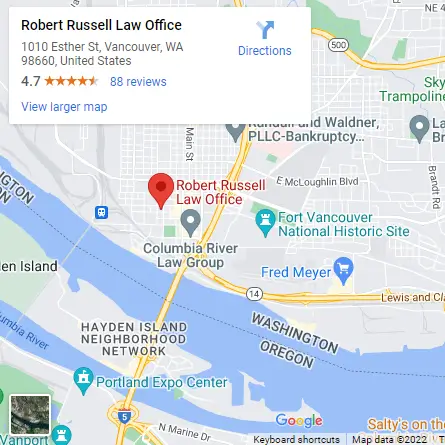How Can We Help?
Are Income Taxes Dischargeable In Bankruptcy?
This can be a very complicated analysis. I am going to keep it simple in this article.
BASIC RULE FOR DISCHARGING INCOME TAXES IN BANKRUPTCY
Income taxes, both state and federal, can be discharged in Chapter 7 and 13 if the following requirements are met:
- The return for the year was due more than three years prior to the date of the filing of the bankruptcy;
- The return was actually filed at least two years prior to the date of the filing of the bankruptcy (and before the IRS filed a substitute return); and
- There was no new assessment of tax in the 240 days prior to the filing of the bankruptcy.
There, a nice simple rule, right? Well, we all know that nothing is truly simple with taxes. (But, it’s really not that tricky in most cases.)
TAX RETURN DUE DATE
Income tax returns are normally due April 15 of each year. However, if April 15th falls on a Saturday or Sunday, the due date might be April 16 or April 17. A debtor must keep this in mind when calculating the “due date”. You do not want to miss the discharge date by filing one day too early! Also, if the taxpayer has filed an extension to file the tax return, the “due date” for the return is moved out six months to October 15, 16 or 17.
TAX RETURN “FILED” DATE
A debtor seeking to have an income tax discharged has to have filed their return at least two years prior to the filing date of the bankruptcy petition. The idea is that a taxpayer has to give the taxing authority at least two years notice of the tax due by filing a return. This gives them at least two years to pursue you to collect the tax. Be aware that there are important court decisions that say that if the IRS or other taxing authority files a “substitute return” for you before you file a return, then your subsequent filing of a tax return does not count. In other words, if you wait too long to file a return and they file one for you, then you can file a return BUT it will not count AND you can NEVER meet this requirement. In short, you might choose to FILE your return on time even if you cannot pay the tax if you want a chance to discharge the tax in bankruptcy.
NEW TAX ASSESSED IN THE 240 DAYS PRIOR TO FILING
If the reason you are filing bankruptcy is because the IRS just told you they disallowed a tax deduction and you owe more tax, then this rule matters for you. In short, any tax assessed in the 240 days prior to filing is nondischargeable. For example, if you claimed your adult child as a dependent and the IRS notified you that your adult child filed their own tax return and you owe tax because you cannot claim them as a dependent, then the tax due as a result of this is nondischargeable if you file before 240 days have passed.
SOME EVENTS TOLL THE RUNNING OF TIME
Generally, income taxes are dischargeable in bankruptcy as long as they meet the above requirements. However, sometimes the time requirements do not run if the debtor has a pending “offer in compromise” under review with the taxing authority. Also, having filed a previous bankruptcy may have also tolled (stopped the running of) the time requirement(s). (Note: Just entering into a payment arrangement / installment agreement with the taxing authority will not toll the passing of a time requirement.)
COMPLICATED BANKRUPTCY TAX RULES
I have shared with you the basic rule for the discharge of income taxes. The key point is that income taxes can be discharged in bankruptcy. Sometimes penalties and interest are dischargeable even if the tax is not. If your taxes are not income taxes (e.g. trust fund or sales taxes) the rules are different. There ARE ways to manage those taxes in bankruptcy.

FREE INITIAL CONSULT
I am sure that it comes as no shock to you that tax issues in bankruptcy are sometimes tricky. If you want a free consultation to discuss if bankruptcy can help you with tax debt, just contact us and schedule a free consultation.


